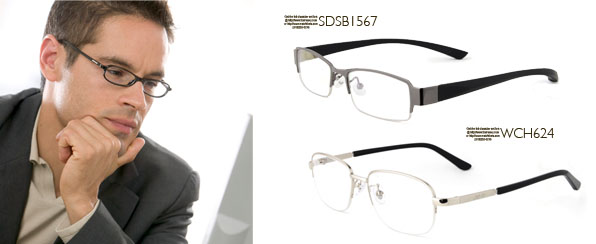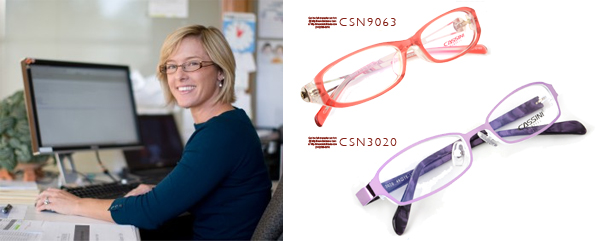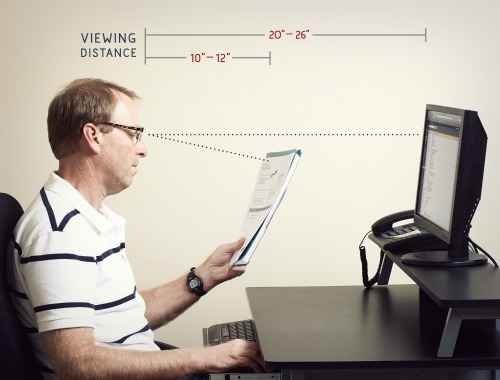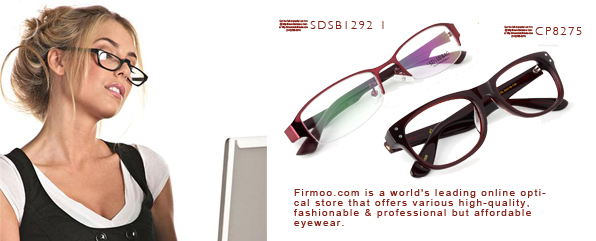
Computer glasses just as its name implies is a kind of glasses for computer use. It is good for those people who easily experience eye strain, blurred vision, red eyes and other symptoms of computer vision syndrome (CVS) when they work at a computer for any length of time. There are three general types of computer glasses. They are single vision lenses, computer reading glasses and variable focus glasses.
Computer glasses with single-vision lenses are calibrated in such a way that only objects just as distant from the user as the computer screen is will appear clear. Items that are closer or farther than the monitor will appear blurry. Wearing these glasses reduces the number of obstructions users see while working on the computer.
Computer reading glasses, on the other hand, allow better vision at multiple ranges. The lenses are usually separated into two halves. The upper half is calibrated to clarify vision on objects at the computer screen’s distance, while the lower half is designed to improve vision on closer materials such as reading newspapers and books. These computer reading glasses are ideal for individuals whose work requires them to work with items outside of the computer screen.
Variable-focus computer glasses improve vision at three ranges, allowing for maximum versatility. Unlike computer reading glasses, variable-focus glasses allows for clear, unobstructed vision of the work at hand. That is to say, the can help you see the objects from faraway to close up. The lenses are often difficult to craft, making them much more expensive than the other two options.
Computer glasses often have lenses that are coated with special materials that address issues such as glare and computer vision syndrome. Some glasses are tinted to reduce the white glare from computer screens, while others are coated with melanin to reduce overall glare and improve contrast, as well as block out potentially harmful ultraviolet (UV) rays. Computer glasses can also be specially made to correct discoloration in an individual’s vision; rose-tinted and blue-tinted glasses, for example, can allow users to better differentiate certain colors from others.



































